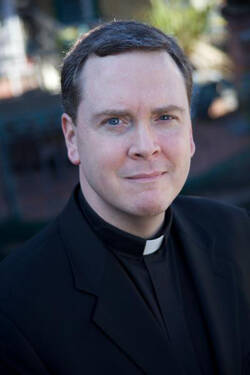As they have done for more than 800 years, Parisians crossed the narrow bridges leading to the eastern half of the Île de la Cité last month. They were en route to Sunday Mass at Notre Dame, the 12th-century cathedral that is the pride of Paris, the most magnificent building in a city with a surplus of splendor. The skies were lisping rain, turning the cobblestoned streets into a slippery hazard for the many tourists who filled the plaza in front of the church.
The scene inside was at once familiar and entirely foreign to me. The cornerstone of Notre Dame was laid more than 300 years before Columbus sailed for the Americas. There is no church in the new world that evinces a similar sense of connection with our forebears in faith across so many generations. Like every Catholic church, however, Notre Dame is home to me, the place where there are no strangers, only brothers and sisters, where there is no ultimate division but only the unity-in-diversity of a eucharistic people.
As the procession wended its way across the ancient stones, images from long-ago high school history classes came to mind, scenes from a drama in which I did not feature but is nevertheless my story as well as yours. I thought especially of the role that hubris played in that story, the toxic pride that the Greeks believed was the besetting sin of every classic protagonist. How else to explain the prideful idolatry of the French revolutionaries who rededicated Notre Dame to the Cult of Reason. As the choir intoned the Kyrie, I could not help but think that while the French Revolution was the result of multiple social and political forces, the very best account of its principal cause can be found in the first four chapters of the Book of Genesis.
The lights and shadows of this musty Gothic mammoth reveal the lights and shadows of human history. At Communion, the capacity crowd traversed the same center aisle that Napoleon used en route to his self-crowning in the sanctuary, the very same aisle that some German Catholic soldiers no doubt used during the occupation. All thought their worldly empires would last 1,000 years, yet the church alone can claim that longevity, as well as the hope that we will survive yet another 1,000 years of inhumanity.
Over the next year the church in the United States will enter into a difficult conversation about the work of the Synod on the Family. We will discuss and disagree, no doubt, about the best way for the church to meet the temper of the times. “A particularly delicate question,” writes the Rev. Robert Imbelli in this issue, “is whether, besides the usual criteria bearing upon validity, one ought, in a highly secularized society, take into account the Christian faith (or lack thereof) of those who entered into the marriage covenant” when assessing the grounds for an annulment. We will also discuss whether to modify the present discipline regarding the admission of the civilly divorced and remarried to the Eucharist.
Throughout that discussion, we would do well to remember our own history. The forces of contemporary secularism are strong, but it is unlikely that Richard Dawkins and his colleagues are going to storm St. Patrick’s Cathedral and rededicate it to the Cult of Reason, or that a change in pastoral practice is going to bring down the only institution to have survived antiquity, not to mention the French Revolution and two world wars. Some argue that the proposed changes are too dangerous to contemplate, that they are, in effect, a slippery slope more treacherous than an unscuffed sole on a wet Parisian sidewalk. While that is a legitimate concern, let us remember that the challenge before us is not nearly as great as those we have already met and, by the grace of God, we have always overcome.








